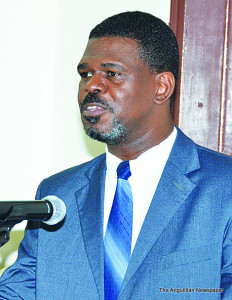
I remember, when I was very young, my mother and other village women using a bar [of soap] they called “Blue”, to whiten white clothes to the fullest. Not knowing anything about chemistry at the time, I was fascinated how the colour blue could work so well to produce the colour white. As Anguilla’s leaders seek to raise the banner of gambling over our island’s tourism product, they will find that many clients will come with their own version of “Blue” to wash their millions clean. Money Laundering is yet another evil surrounding the gambling industry. We fear for our country and we pray to God that our leaders would see the error of their ways and cease this push to allow casinos in Anguilla.
In a previous article we had detailed the many horrid stories from countries around the world who warn others not to allow casinos into their communities. We read testimonies about land values plunging, bankruptcies, families being torn apart, people becoming addicted and entire communities being impoverished all because of casinos; and keep in mind that all this is endured by the common man while casino owners fill their pockets with wildly exorbitant profits.
In doing the research for that article, I discovered another evil within the gambling industry: MONEY LAUNDERING. According to Oxford Languages: the definition of Money Laundering is: the concealment of the origins of illegally obtained money, typically by means of transfers involving foreign banks or legitimate businesses.
It is an ongoing problem in the industry; and Anguilla (here at the edge of the world with limited resources), will not be exempt. Quote, “With gambling giants like Entain recently being fined over £17 million for violating AML protocol, fraudulent activity via the casino system is a recurring issue that has been ignored for too long. The failings of these big gambling players to clamp down against money laundering not only contributes to the proliferation of criminal activity such as human trafficking and illicit arms dealings, but it also highlights how casinos now act as a platform for modern slavery.” [finextra.com].
In a Basel article entitled, “Money Laundering through the Gambling Industry”, it states, “The gambling industry is perfect for laundering criminal funds. It includes a wide variety of businesses that juggle large transactions (often in cash) at a rapid scale, such as physical casinos, online casinos, bars and clubs housing poker machines, and both physical and online sports betting services. Moreover, it’s a big industry that’s growing exponentially.” Unquote.
In other words, fellow Anguillians, even nations with great resources are not able to prevent money laundering within the gambling industry. The article goes on, “The fact that criminals can exploit this industry to launder money isn’t exactly a revelation. The extent to which this occurs, however, can still come as a shock – especially in countries with supposedly strict AML measures. For example, the Crown Casinos in Melbourne and Perth, Australia, are facing allegations that hundreds of millions of dollars were laundered through their casinos between 2014 and 2019 via “junket” programmes in which the casino and tour operators facilitated a period of gambling by high-roller players from foreign jurisdictions. Similarly, the Cullen Commission report paints a stark picture of the enormous amounts laundered through the gaming industry in British Columbia, Canada.” Unquote.
Financial-Crime-Academy.com reports, “Financial gain is a bet that can recompense for unscrupulous fraudsters, and it is apparent that the lucrative betting business has been a big target for money launderers for a long time, particularly in the United Kingdom. Criminals engaging in money laundering through casinos on a lucky line will acquire innovative ways to penetrate the system and launder money just behind those seeking to stop them, despite stricter legislation, verification procedures, and due diligence inspections.” Unquote. We should not be looking to better regulate this industry (as others are finding it impossible) but we should be seeking investment opportunities that do not so negatively impact our social, financial, mental and spiritual well-being as gambling does.
Many Caribbean countries have now or in the past, been associated with money laundering or other financial crimes; Anguilla is no exception. Having recently come through a banking crisis you would think that our leaders would be extra careful to not invite shady avenues by which our image could be further tarnished. Apparently, not so.
Of course we applaud the Anguilla Financial Services Commission and the great work they do in collaboration with regional partners to prevent financial crimes; but what we find here is disturbing; money laundering is yet another prong of the fork being forced into Anguilla’s bleeding side. Not only is it proven that gambling is bad for our souls, our children’s future and our communities, but we now find that it is such a vulnerable industry, that it will attract a type of criminal that we have not seen since the scandals of the 1980s. Our nation’s name, our reputation may be lost forever if we proceed; because you can wash from now ‘til kingdom come; but dirty money will always be dirty money; and God sees all.
SOURCES:
1. https://www.finextra.com/blogposting/23284/why-casinos-are-still-failing-to-crack-down-on-money-laundering-and-how-they-can-tackle-it.
2. Oxford Languages: Money Laundering (meaning).
3. https://learn.baselgovernance.org/course/view.php?id=150.
4. https://financialcrimeacademy.org/gambling-aml-money-laundering-through-casinos/








